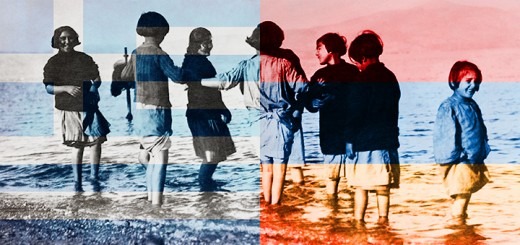Countries Selling Weapons to Azerbaijan are Just as Guilty for Attacks on Artsakh
[dropcap]A[/dropcap]zerbaijan’s armed forces committed a criminal act on November 12, shooting down an unarmed Armenian helicopter inside Artsakh’s borders and killing three military officers. This is the first time since the 1994 ceasefire that Azerbaijan has attacked an Armenian aircraft.
Armenia should not only retaliate against Azerbaijan, but also take all appropriate diplomatic measures to identify and condemn the country that sold Baku the missiles used to down the helicopter. It should be noted that in recent years Israel and Russia have sold billions of dollars of sophisticated military hardware to Azerbaijan.
This unwarranted attack is partly due to 20 years of tit-for-tat border skirmishes during which Azeri sharpshooters kill Armenians and Armenian soldiers return fire, killing Azeris. Sitting in his Palace in Baku, Pres. Aliyev does not seem to be bothered by the loss of young Azeris, so long as an equal number of Armenians are killed, since there are several times more Azerbaijanis (close to 10 million) than Armenians (less than three million) in their respective countries. For Aliyev, sacrificing Azeri soldiers is a worthwhile investment for the sake of keeping the focus of the international community on the unresolved Karabagh conflict.
Armenians worldwide are relieved that leaders of Armenia and Artsakh have announced their serious intent to respond to the latest Azeri aggression with a massive and disproportionate attack. One would hope that after a major Armenian counteroffensive, Aliyev might realize that Azerbaijan is paying a heavy price for his self-defeating military adventures.
Sadly, the Armenian unwillingness to launch a large-scale retaliation over the years emboldened Azerbaijan’s despot to resort to more brazen attacks, culminating in last week’s downing of an unarmed helicopter. What’s next? Blowing up a civilian plane with a large number of Armenian passengers, as he has repeatedly threatened to do?
Another puzzling situation is the continued high-level peace talks between the two countries, while one of the sides — Azerbaijan — keeps on shooting! How is it possible to talk peace and fire at the same time? At the end of every summit meeting, Armenian and Azerbaijani leaders, along with Minsk Group mediators representing the United States, France and Russia, routinely declare that the Karabagh conflict should be resolved through peaceful means, while Azerbaijan continues its aggressive behavior before, during, and after the peace talks!
To make matters worse, after each Azeri attack, the Minsk Group urges both Armenia and Azerbaijan to exercise restraint and places the blame equally on both sides. Such unfair and false parity only emboldens Azerbaijan to intensify its aggression. If the international community truly seeks a peaceful resolution and wants to prevent unnecessary bloodshed around Artsakh, it should ban the sale of weapons to Azerbaijan and issue a strong condemnation each time it violates the ceasefire.
Meanwhile, the Armenian government needs to take all necessary defensive measures to protect the people of Armenia and Artsakh from wanton Azeri attacks, even if it has to launch pre-emptive strikes deep inside Azerbaijan. Aliyev should not forget that his country’s oil and gas pipelines, oil fields and refineries are highly vulnerable to such attacks, which could cause billions of dollars of damage to the economy.
To discourage Azerbaijan’s aggressive behavior, Armenia must declare that it would not only retaliate, but also freeze the peace talks by six months after each Azeri attack. Because Aliyev hopes to get back through negotiations some of the territories on the periphery of Artsakh, the suspension of peace talks would delay and eventually block the return of any territory. Thus, after a lengthy suspension of the talks, Aliyev would learn a valuable lesson: You can’t talk peace and make war at the same time!
Should Azerbaijan persist in its hostile behavior, Armenia could terminate all negotiations and decide either to recognize the Republic of Artsakh, or officially declare that Artsakh is an inseparable part of Armenia.
If Aliyev is foolish enough to make war, he may end up losing more territory and leave his country’s considerable energy infrastructure in total shambles. No one should take seriously Aliyev’s repeated threats to invade Armenia and Artsakh. Most military experts acknowledge that Azerbaijan’s military is inferior to Armenia’s, despite the lavish expenditure of billions of petrodollars to acquire the latest weaponry.







